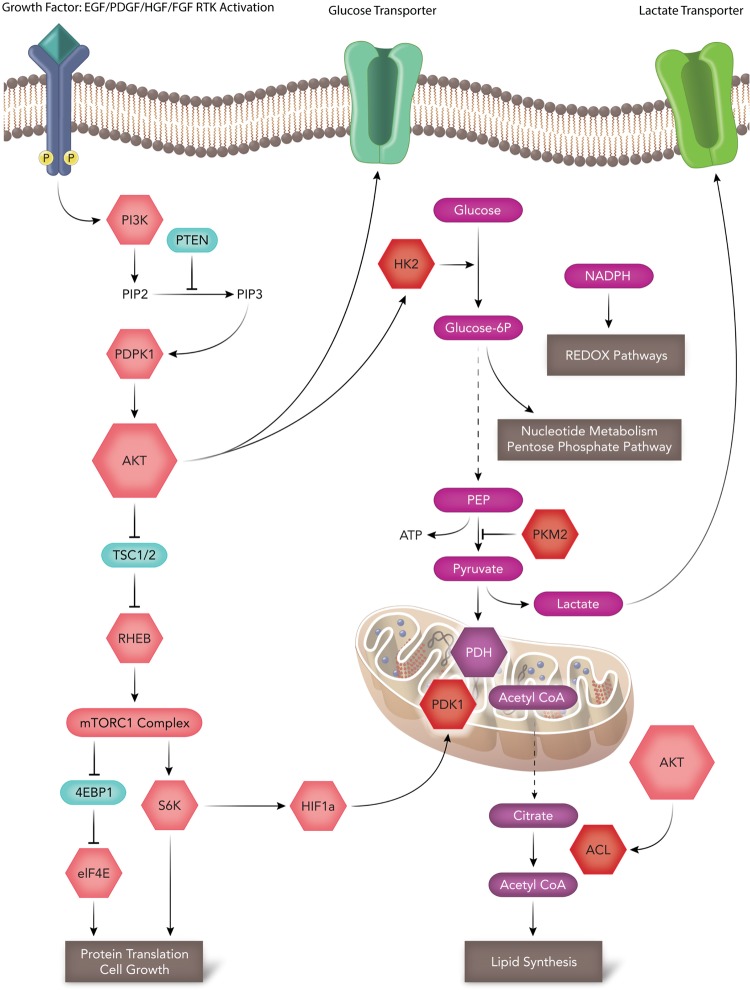Fig. 2.
Molecular signaling and the advantages of Warburg. The PI3K-AKT-mTOR signaling pathway, which is highly deregulated in glioblastoma, directly regulates glycolysis and the tricarboxylic acid (TCA) cycle at numerous steps. AKT can promote aerobic glycolysis by promoting increases in glucose transport and hexokinase activity (HK2). Increased AKT activity can also promote ACL-dependent conversion of citrate to cytosolic acetyl-CoA for fatty acid synthesis. Increased glycolysis can promote nucleotide synthesis and generate NADH-reducing equivalents for REDOX. Inactive PKM2 can slow the rate of glycolysis diverting intermediate metabolites to anabolic pathways. mTORC1 stabilization of HIF1a can promote PDK1 activity, diverting pyruvate into lactate generation.

